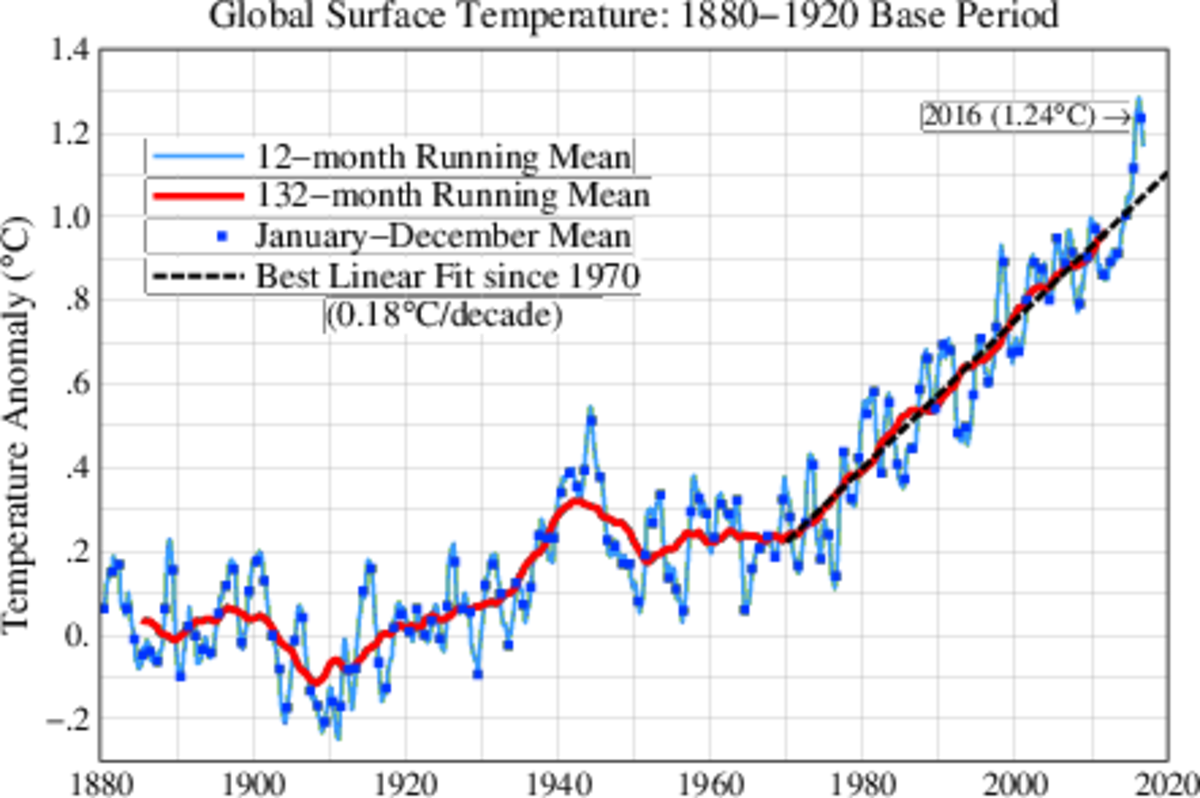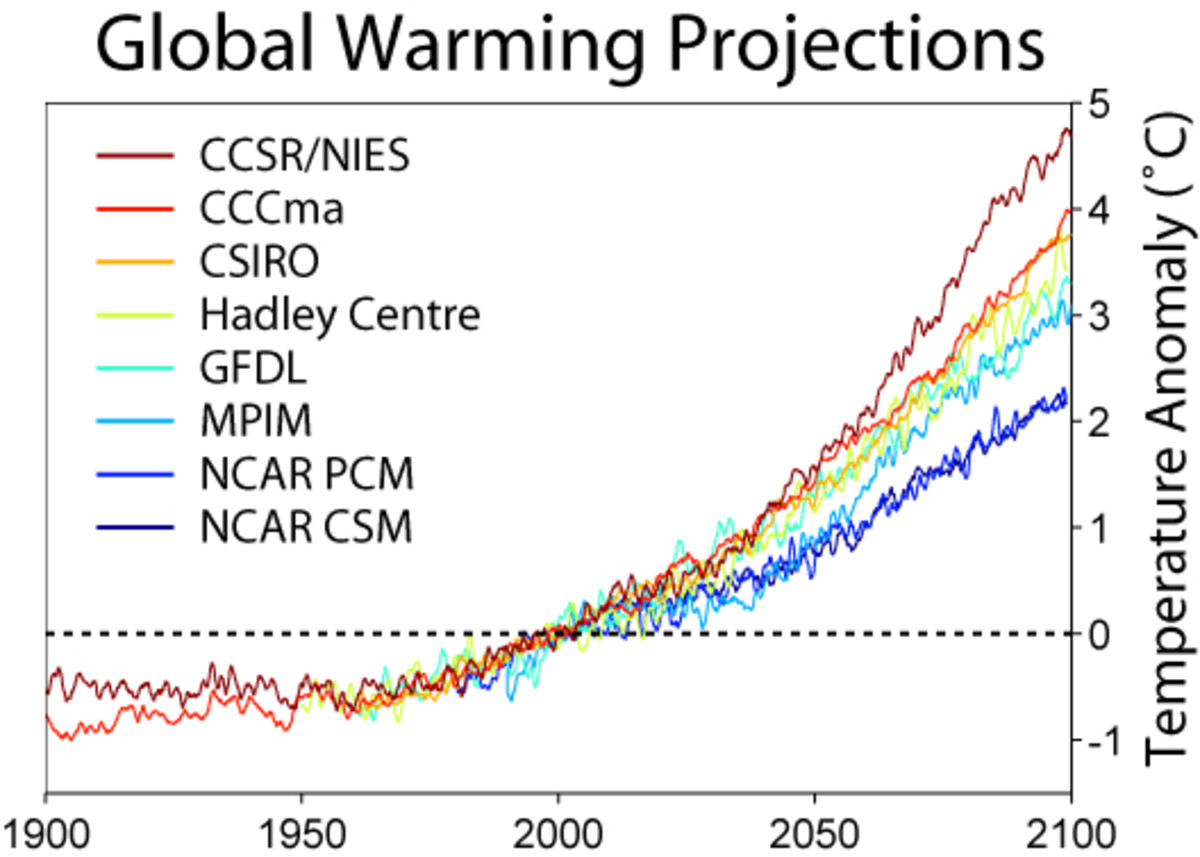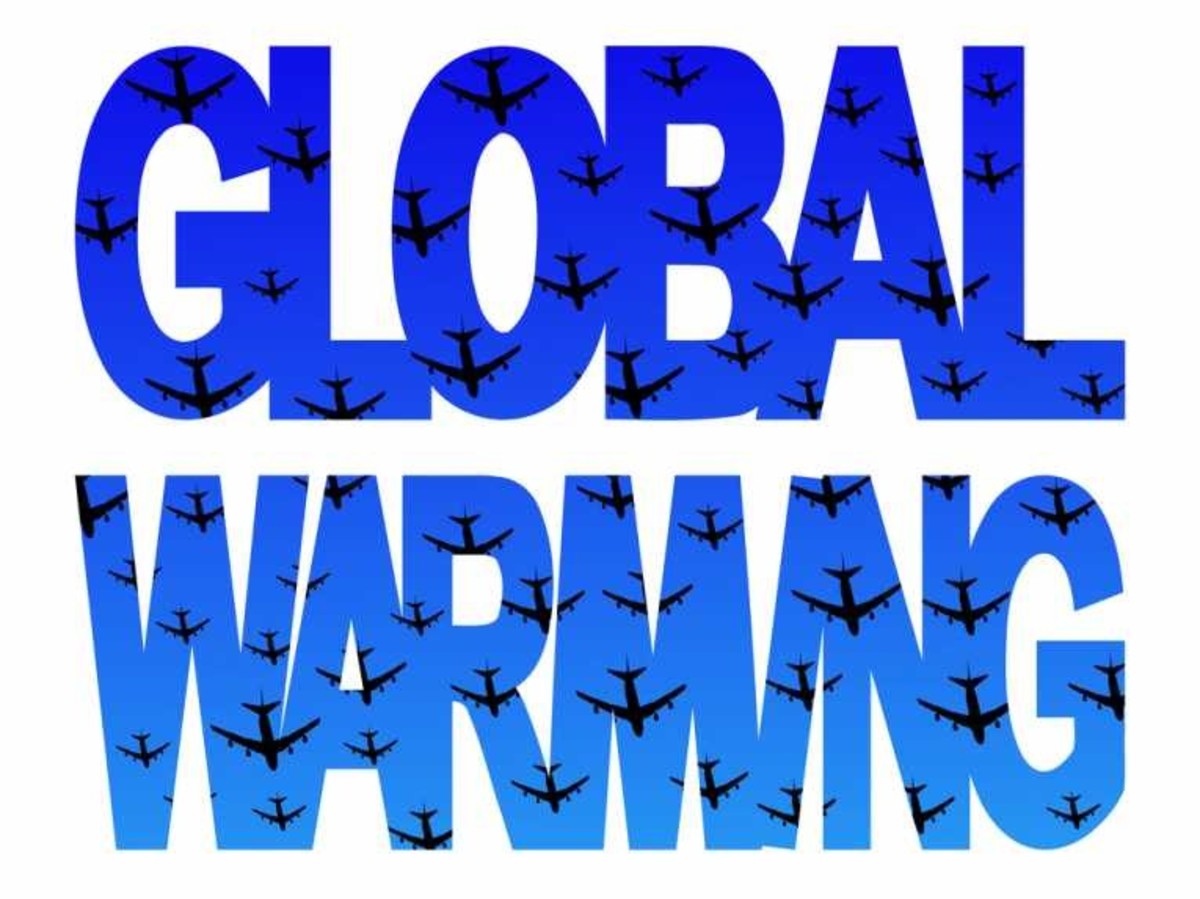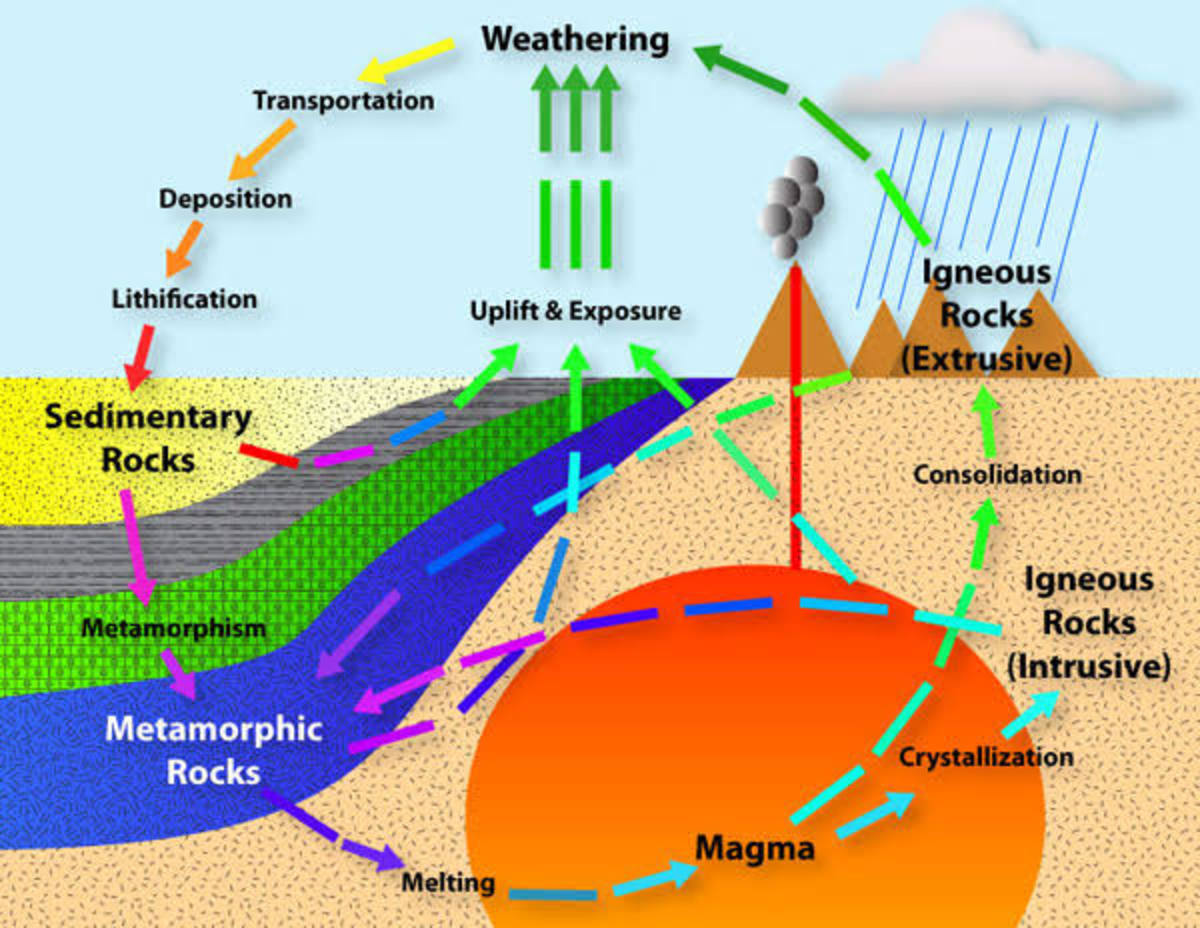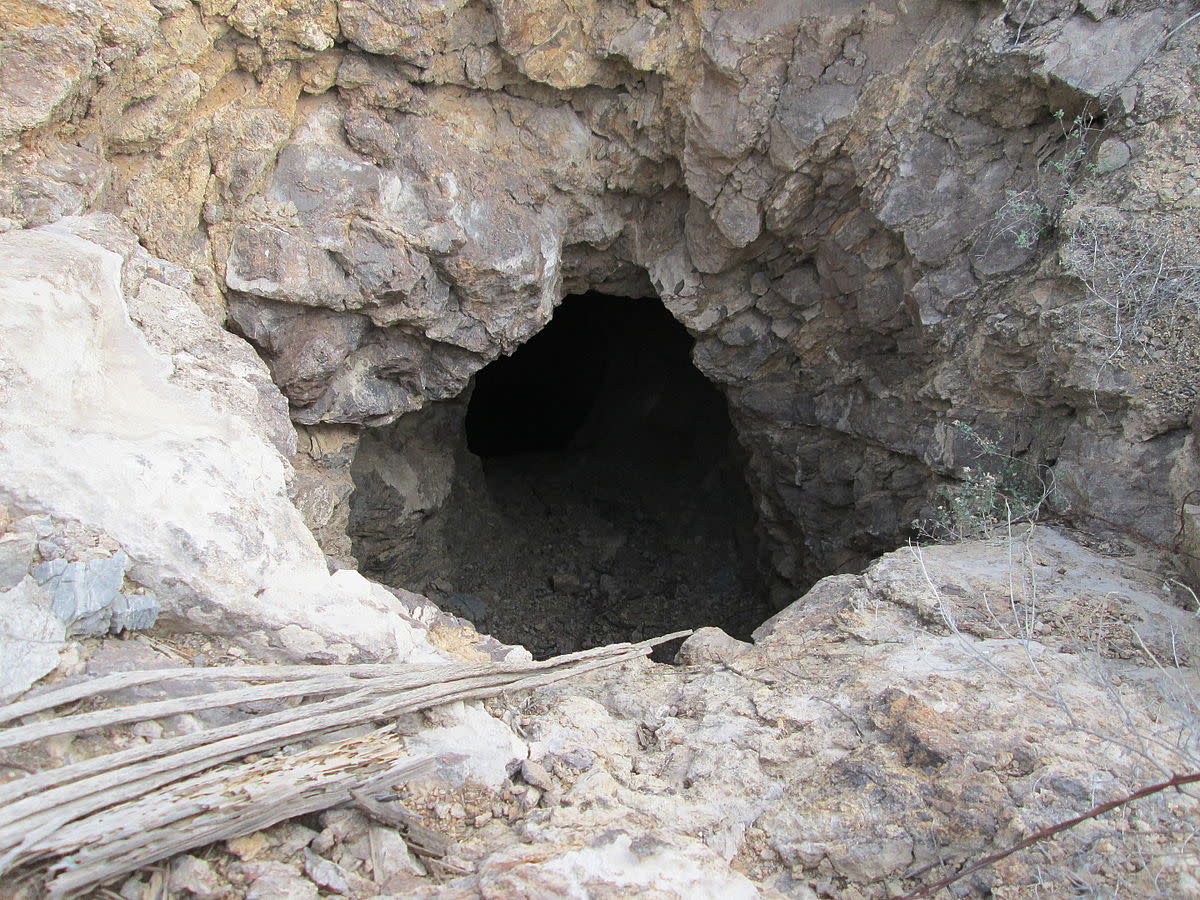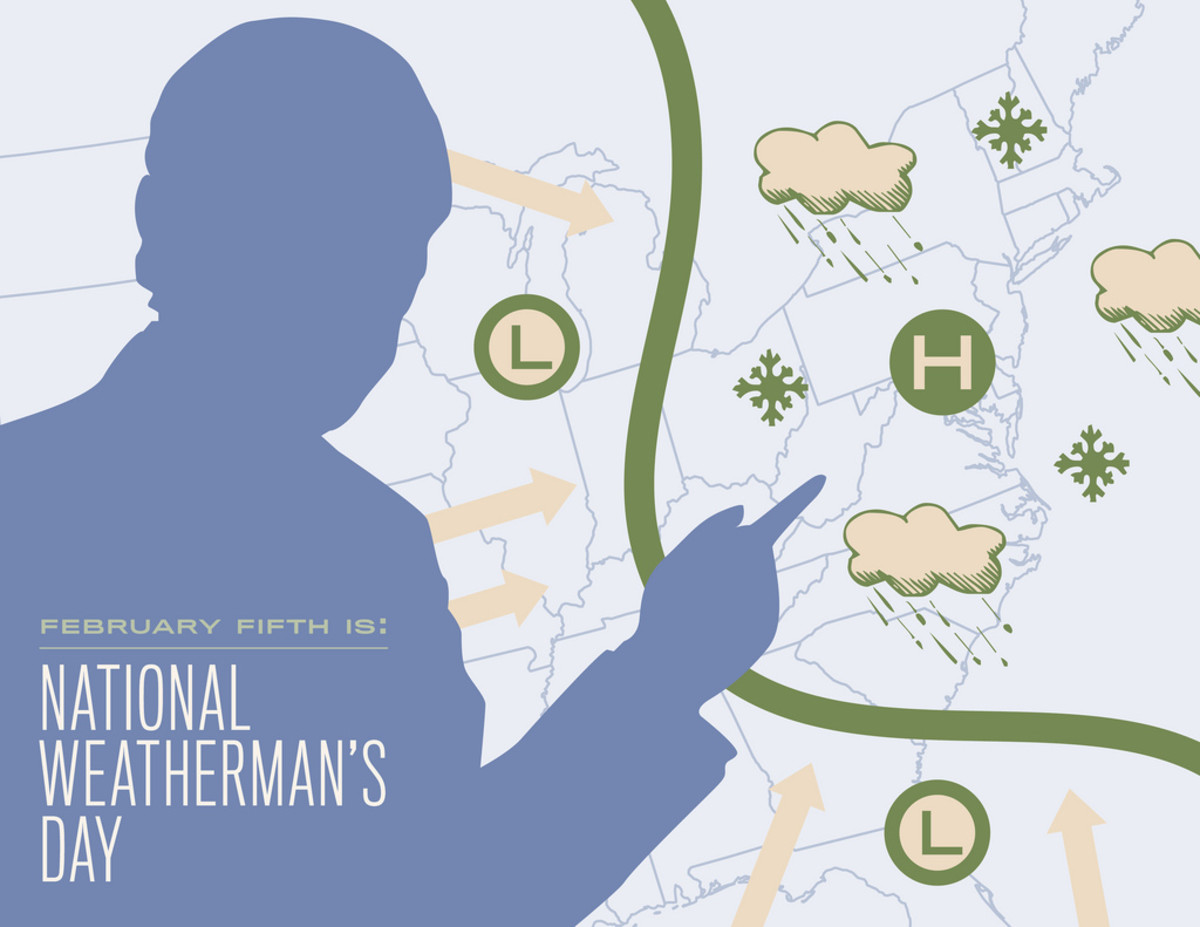Global Warming Denialist Myths, Part 1
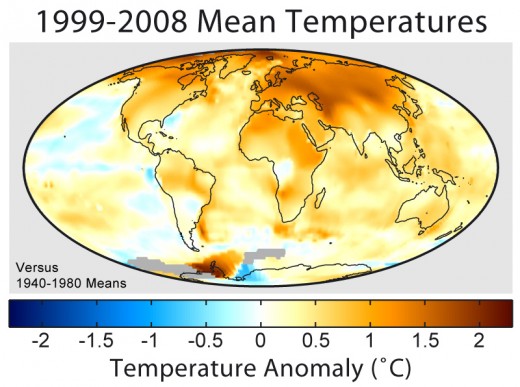
Global warming - or more specifically, climate change caused by global warming - is one of the biggest challenges facing the world today and one of the most often misunderstood. Climate change is a complex issue, and many industries have a vested interest in delaying the adoption of policies to combat climate change. As a result, Americans in particular are bombarded with any number of illogical arguments, half-truths, misconceptions, misstatements, and lies.
While I cannot hope to address all of the many myths out there, I'll try to tackle a few of the most onerous in these hubs.
Myth #1: Most Carbon Dioxide Is Naturally Produced, So Why Worry?
This myth is more of a misunderstanding - in some cases, a deliberate misunderstanding - than an outright falsehood. Yes, most of the CO2 and other greenhouse gases produced each year are produced naturally. That doesn't mean that we should ignore our emissions, or that the global climate can simply absorb our excesses until eternity.
As mentioned above, most of the CO2 produced each year is produced naturally. Animals, volcanoes, rotting plants, and burning forests are major sources of CO2. In fact, natural sources account for 96% of yearly carbon emissions. So why should we worry about our measly 4%?
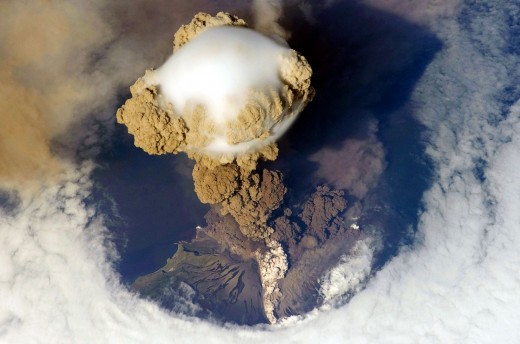
Small Differences Add Up
I'll give an analogy before I go into more detail. Say that you have a monthly income of $2,000. When you're first starting out, your monthly bills are $1,800. You're not exactly thriving, but you can get by and even have enough for a night out or some other monthly splurge, and you can still put some money into savings. You manage to save up $10,000 like this.
As time goes on, however, your savings make you cocky. You sign up for a fancy cell phone package, and start spending an extra $75 a month on that. You decide you want Netflix, and so you're spending $10 a month on that. You keep adding more and more minor expenses, until eventually, through reckless decisions, your monthly bills start to outpace your income. It's not by much - you're only spending $2,080 a month, versus your income of $2,000. You figure that you have plenty of time, though, so you don't take any steps to address this.
If you don't do anything to change this, you'll eventually run out of money. In this case, it would take ten years to blow through your savings, if you didn't take any steps to change your behavior.

Why Does It Matter?
When it comes to global warming, we've been outspending our planet's carbon-absorption capacity for over a hundred years. We don't add much to the overall levels of atmospheric CO2 per year, but they just keep adding up. Four extra ppm here, three there... it doesn't sound like much, but when you keep adding it on over decades it starts building up into dangerous territory.
In my analogy, our income is the Earth's carbon-absorption capacity; our monthly expenses are the total worldwide CO2 emissions from all sources. So long as they're relatively balanced, we're okay, but once emissions begin to exceed absorption capacity, we only have so long before things start going wrong.
The Earth's carbon-absorption capacity is limited. The natural carbon cycle is a delicately balanced process that has evolved to an equilibrium over thousands and millions of years. Most atmospheric CO2, for example, is absorbed by the oceans. Seawater only has a limited capacity to absorb CO2; there is a finite amount of ocean surface area. Plants, too, have a limited capacity to absorb CO2. And once plants die, the carbon they had stored over the course of their lifetime is released back into the atmosphere as they decay.
And really, it doesn't matter whether most of the CO2 is released by humans or by natural events. Humans do emit CO2, methane, and other greenhouse gases; this is a fact. It is measurable and has been measured. Increases in greenhouse gases cause a warming of the atmosphere; if you don't believe that, go vacation on Venus for a day.
Even if we can't remove the lion's share of CO2 emissions, any reductions are helpful. We're not going to reverse decades of abuse overnight; until we can develop economical and effective carbon sequestering techniques, the only way we can reduce atmospheric CO2 levels is by reducing our own output below the level that natural systems can handle them. This will only get more difficult the longer we ignore it.
Look for more hubs like this one in the future!


